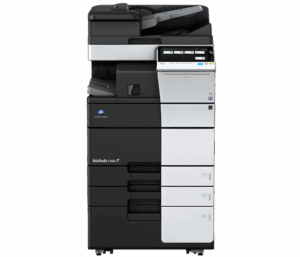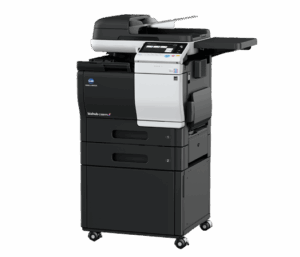Information Technology Services
Information Technology Services (ITS) is one team in the Office of Financial Affairs and an essential component of campus life. ITS consists of 10 full-time staff members, each with varying specialties, to support the University’s needs. The ITS team also employs student workers filling a variety of roles. Together, the team works to provide the strategic direction and daily support for a wide variety of technology-based systems.
Labs
There are labs scattered around campus. The lab computers are available on a first come, first served basis. The lab hours of availability generally coincide with the building’s hours. For some labs, a person with a valid University ID may remain after a building is locked.
Residents have access to the lab in the building where they live. The labs are located on the 1st floor of each hall. These labs are 24/7 and each includes a printer.
Beyond the residence halls, the following buildings have public labs:
– Funderburg Library
– Science Center
– Winger


Information for New Students
Welcome!
New North Manchester StudentsITS Information for New Students, North Manchester Campus
Welcome!
New Fort Wayne Students
Systems
The ITS team supports many systems that are accessible to faculty, staff, students and more.
Key Student Portals
Canvas:
Learning management system (LMS) where students can takes quizzes and tests, turn in assignments, read the syllabus, participate in a discussion and much more.
Help Desk:
Help Desk system where you can request ITS assistance.
Office 365:
The email system, access to files through OneDrive for Business and more.
Quick Reference Videos
911 Information
When should I call 911?
911 is for emergencies or things that could become emergencies.
- Is there a threat to life or property?
- Are you or someone else the victim of a crime?
- Do you have a police emergency?
- Do you or someone else have a medical emergency?
- Do you need the fire department?
If the situation seems urgent and/or has the potential to become dangerous, call 911. Dispatchers will determine whether your call should be handled by 911 or can be transferred to another person or agency. All other calls should be directed to our non-emergency number: 982-8555.
What if I call 911 accidentally?
If you accidentally dial 911, do not hang up. Stay on the line and tell the dispatcher that everything is alright. If you don’t, the dispatcher may think that something is wrong and send a police officer to check.
Why do the dispatchers ask so many question when I call 911?
Emergency dispatchers need to get accurate information to allow officers to make the best decision on how to approach the situation. Dispatchers handling fire and paramedic calls must also consider the well-being of the public and the safety of the firefighters and paramedics. Callers will be asked:
- Where
- What
- Who
- When
- Sometimes Why
The information you provide a dispatcher is relayed to responding officers, paramedics, or firefighters while they are on their way to the call.
If I call 911, what will they ask me?
- What is the location of the emergency?
This is the address where the emergency is actually happening. If you don’t know the actual address, tell the dispatcher and then: - Give cross streets or a “hundred block.”
- Provide landmarks, business names, or parks near the emergency.
- Look at the house numbers in the area.
- If you are calling from inside a home or business, look on a piece of mail.
- When asked for a location, we need you to be specific.
Also, if the suspect just left (such as a theft suspect), we need to know which way that suspect went and a description of how he looked.
- If you are asked to describe a suspect, start with the most obvious things.
Some examples are: - “He was a white male.”
- “He had a gun.”
- “He was at least 6 feet tall.”
- “He was wearing a bright red jacket.”
- “He had a long brown beard.”
- If you describe a vehicle, include:
- License plate information including the state.
- Color
- Year (If unknown, tell the dispatcher if it was a new or old vehicle)
- Make (Was it a Honda? Nissan? Ford?)
- Body style (Was it a 4-door? Hatchback? Pick-up truck?)
- Other things you may remember about it.
- What is the phone number you’re calling from?
This is the number for the phone from which you’re actually calling. The dispatcher needs this in case he has to call you back.
- What is the problem?
Tell the dispatcher exactly what happened. Be as concise as possible. Tell the dispatcher what the problem is now, not what led up to the problem. - “I see a fight on the corner of 6th and Main.”
- “I am fighting with my husband.”
- “There is a car accident westbound on I-84 at the Meridian off-ramp.”
The dispatcher also needs to know if you’re going to be at, or near, the scene when first responders arrive because the police may need to talk to you or you may need to point out the exact location. The dispatcher may ask you what kind of car you are in or what color clothing you are wearing.
Why do the paramedic dispatchers ask so many questions?
Two dispatchers handle every medical call. While one dispatcher is asking very specific questions, the other dispatcher is already sending out an ambulance. You will be asked a series of questions that will help determine the response of paramedics to the call. The paramedics will be better prepared to help the patient with the information you have provided.
- What is the location of the emergency? (Where are the paramedics needed?)
- Tell the dispatcher exactly what is happening (with the patient right now).
- How old is the patient? (If you don’t know, say so and then give a guess of the age.)
- Is the patient conscious and breathing?
The dispatcher will provide you with some instructions for keeping the patient safe and comfortable until the paramedics arrive. Follow the instructions given to you by the dispatcher.
If I call to report a fire, what should I tell the dispatcher?
You should be prepared to answer questions like these:
- Where is the fire?
- What is on fire?
- How large is the fire? (This is a only an estimate, think about the size of the fire in relation to something common: the size of a living room, the size of a football field, bigger than a grocery store parking lot.)
- Are any structures threatened? Are there flames moving close toward any homes or buildings?
- Do you know if anyone is inside the housing or building?
- Do you know if anyone is hurt?
While you are answering these questions, the dispatcher’s partner is setting off the bells at the appropriate fire stations and getting help on the way.
When I call 911, why do I get asked to hold on?
The same dispatchers who answer the 911 calls also answer the non-emergency calls for service for all law enforcement agencies in Wabash County. When the dispatch center is busy, the dispatchers have to ask non-emergency callers to hold while they answer the 911 calls. Every effort is made to get back to you as quickly as possible and your patience and understanding is appreciated.
Printing@MU
Both campuses now use the new Printing@MU system. Please report any issues to Help Desk.
Known Issues:
- Please report all issues you experience logging into a printer to Help Desk. For example, the printer may be in an error state and you won’t know it because the login screen overlays the error screen.
General Information:
1. Manage your printing account and add funds.
2. There are 55 printers across both locations. All printers support both black and white and color printing.
3. Costs per page are:
| Single-sided 8.5″ x 11″ |
Double-sided 8.5″ x 11″ |
Single-sided 11″ x 17″ |
Double-sided 11″ x 17″ |
|
| B&W | $0.05 | $0.09 | $0.10 | $0.19 |
| Color | $0.12 | $0.23 | $0.24 | $0.47 |
4. Students are allotted printing money on a per semester basis to benefit their studies. Unused printing money will transfer into following semesters up to the allotment cap. Student allotments are as follows:
- Undergraduate: $20 per semester. Allotment cap of $50.
- Graduate: $40 per semester. Allotment cap of $60.
5. Users may log in to campus printers by tapping their campus ID’s on attached card readers. They may also login using their Manchester username and password.
Self-service Training
Konica Minolta How-to Video YouTube Channel
Konica Minolta Online User Guide — Please bear in mind that you’ll use the PaperCut interface in most instances.
Printers You May See on Campus

Konica C558 Color Printer

Konica C3851 Color Printer
Policies and Sanctions
Information Technology Services – Policies and Sanctions
Important Message to Resident Gamers
To obtain the best possible Internet gaming performance, please read about the game console registration process and register your game consoles.
Helpful Information
Hardware & Software Discounts
Illegal File Sharing
Illegal file sharing of copyrighted materials such as music, movies, or software is strictly forbidden. Technology is deployed to prevent illegal file sharing on campus. Policy violations can lead to revocation of network access.
Logging in to Manchester Systems
| Username & password: | Use the same username and password that you’ve used to access ChetNet. |
| Email address: | Use your username followed by @manchester.edu. |
Personally-owned Computer Support
ITS offers limited hardware and software support for personally-owned equipment.




